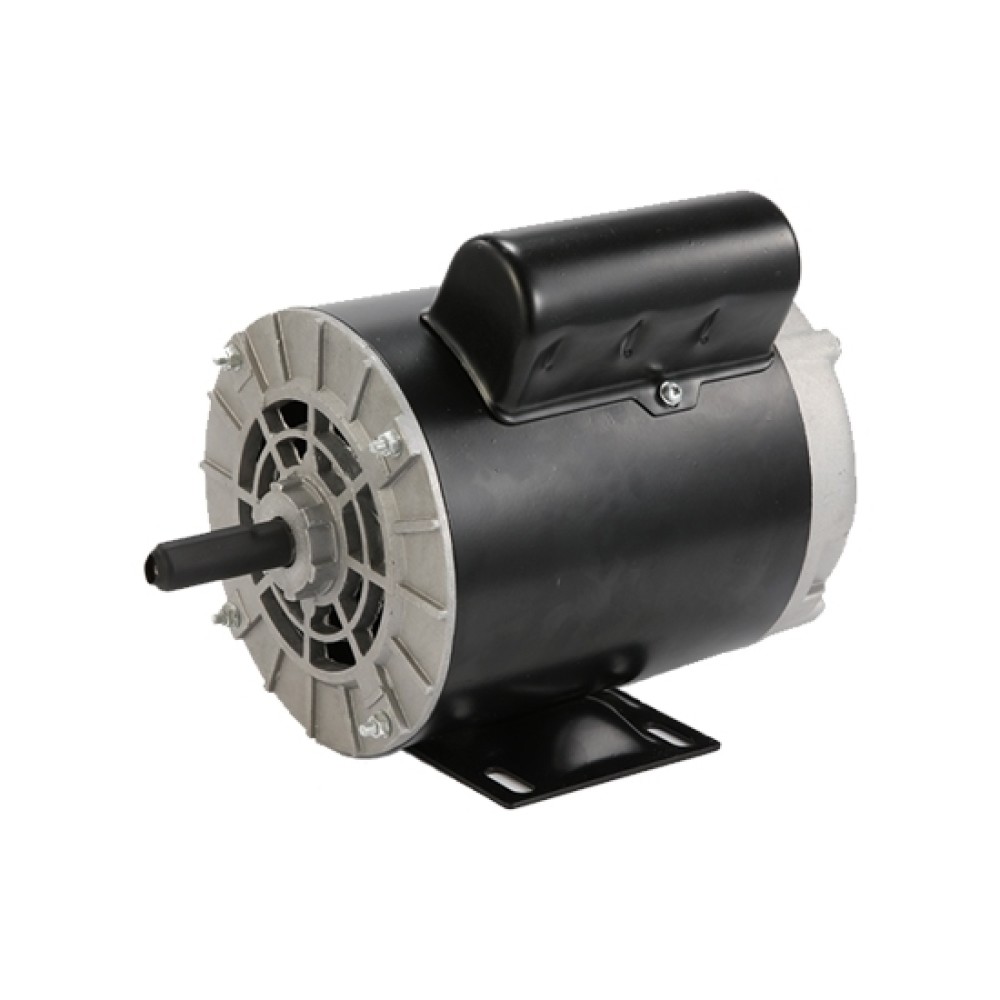Air Compressor Motors: The Heartbeat of Industrial Power
Introduction
In the modern industrial landscape, air compressors are essential to many production processes, providing the necessary pneumatic power for various tools and machinery. The air compressor motor, as the heart of the compressor, directly impacts the efficiency and reliability of the entire system. This article delves into the working principles, types, performance parameters, maintenance strategies, and the importance of air compressor motors in industrial applications.
Types and Working Principles of Air Compressor Motors
1. Types of Motors
Air compressor motors are divided into two categories: single-phase and three-phase motors.
- Single-Phase Motors: These motors operate on a single power phase and are typically used for small or domestic compressors. They are simple in structure and cost-effective, but they have limited power output.
- Three-Phase Motors: These motors require three power phases and are suited for industrial-grade compressors. Three-phase motors offer greater power and higher efficiency, making them the preferred choice for large-scale industrial applications.
2. Working Principles
Air compressor motors work on the principle of electromagnetism, converting electrical energy into mechanical energy. The current flowing through the motor’s windings generates a rotating magnetic field, which interacts with the motor’s rotor to produce torque, causing it to rotate. This rotational motion is mechanically transmitted to the compressor’s pistons or screws, thereby compressing air.
Performance Parameters and Efficiency
1. Power
The power of a motor is a crucial indicator of how much mechanical energy it can provide. The higher the power, the greater the compressor’s capacity to handle larger air flows.
2. Speed
The speed of the motor directly affects the compressor’s compression efficiency. High-speed motors can provide faster compression but may also increase energy consumption and wear.
3. Efficiency
Motor efficiency refers to the motor’s ability to convert electrical energy into mechanical energy. High-efficiency motors can reduce energy waste and lower long-term operating costs.
Maintenance of Air Compressor Motors
1. Regular Inspections
Regularly inspect the motor, including the insulation resistance of the windings, the wear of the bearings, and its cleanliness. This helps prevent failures and extends the motor’s lifespan.
2. Cleaning and Dust Prevention
Maintain the cleanliness of the motor, especially the fans and heat sinks, to ensure good heat exchange and prevent overheating.
3. Lubrication
Regularly lubricate the motor’s bearings to reduce friction and wear, maintaining the long-term stable operation of the bearings.
4. Temperature Monitoring
Monitor the motor’s operating temperature to ensure it stays within safe working limits. Overheating can lead to motor damage or reduced efficiency.
The Importance of Air Compressor Motors in Industrial Applications
Air compressor motors play a vital role in industrial applications. They are required to provide stable power and maintain reliability in various harsh working environments. Motors’ high efficiency and low maintenance requirements can significantly reduce operational costs for businesses, while their high reliability ensures continuous and efficient production.
Conclusion
Air compressor motors are an indispensable part of industrial production, needing to provide strong power while maintaining efficiency and stability in various environments. Understanding the working principles, performance parameters, and maintenance strategies of motors can help businesses better select and maintain air compressor motors, thereby improving production efficiency and reducing costs. Hopefully, this article provides you with valuable information and helps you better understand and use air compressor motors.

